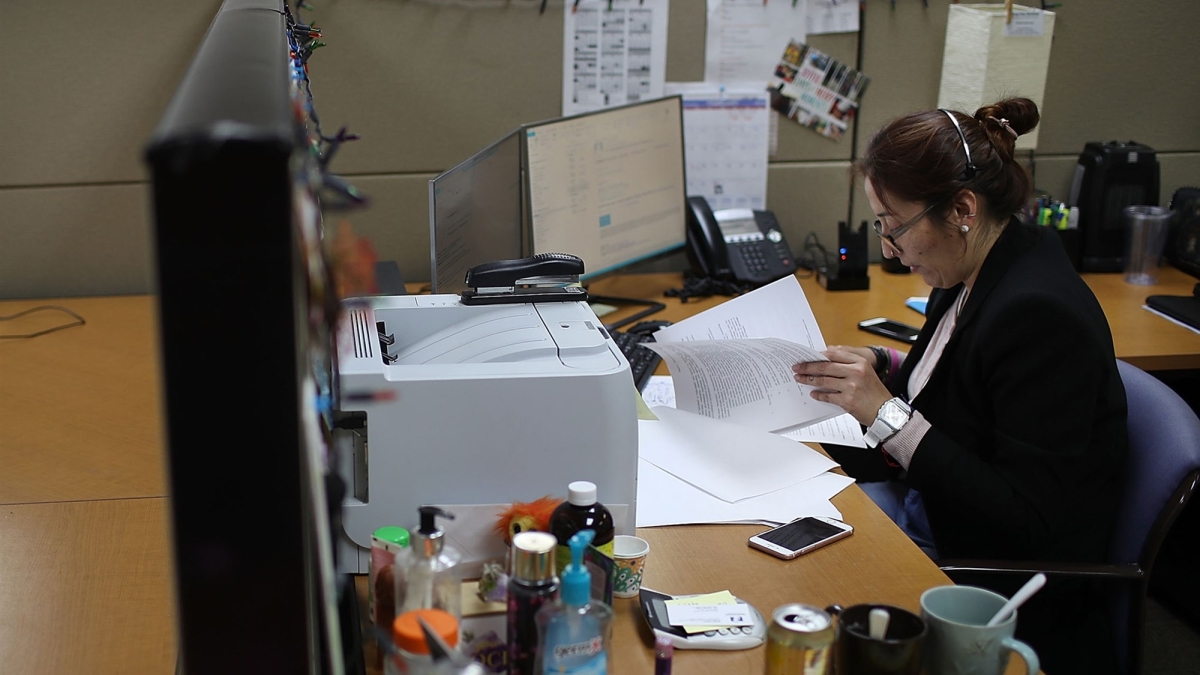How Clinton-era welfare reform keeps Dreamers out of the work force

Lorena Jofre works at her desk at Wilson, Washburn and Forster Insurance Company on Feb. 9, 2018, in Miami. Jofre is one of approximately 800,000 immigrants that fall under the category of Deferred Action for Childhood Arrivals (DACA). Joe Raedle/Getty Images
Although the Deferred Action for Childhood Arrivals program has earned wide bipartisan support, surprisingly few states actually protect Dreamers' right to earn an honest living in any occupation that requires a state license — including as barbers, engineers, nurses, plumbers or in dozens of other occupations.
The evidence suggests that stricter licensing requirements stymie entrepreneurship among immigrant communities. According to a 2015 report by Stephen Slivinski, a senior research fellow at Arizona State University, “occupational licensing statutes place a disproportionate burden on immigrants trying to start their own businesses,” since immigrants are more likely to work in the service industry, which is more heavily licensed than other sectors of the economy.
More generally, after Slivinski matched an earlier data set from IJ’s “License to Work” with data on immigrant entrepreneurial activity from the Kauffman Foundation, he found that “states with heavier-than-average licensing burdens have an average immigrant entrepreneurship rate that is nearly 11% lower than average.”
Reducing the burden of licensure or repealing the requirements for many licenses is crucial to expand economic opportunity. With fewer licenses, both citizens and DACA recipients would face fewer obstacles that would otherwise block their chosen careers and stand in the way of achieving their own American Dream.
Article source: NBC NewsMore ASU in the news

ASU celebrates new Tempe campus space for the Labriola National Data Center

Was Lucy the mother of us all? Fifty years after her discovery, the 3.2-million-year-old skeleton has rivals
